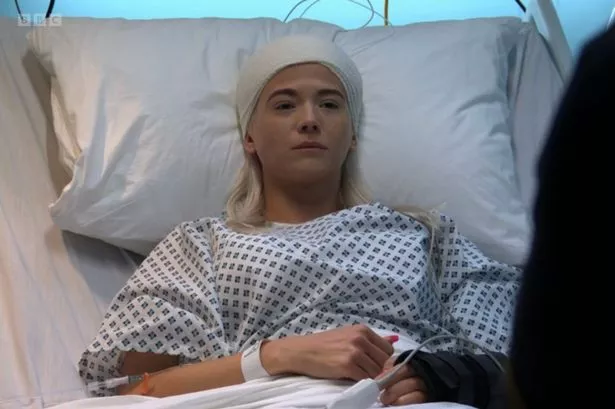Ageism is a form of a prejudice that has been prevalent in society longer than Madonna, which is apt, since the 65-year-old was recently mocked online for holding a beam for support whilst performing. While memes replacing the beam with a Zimmer frame are certainly hurtful, a far more dangerous and less discussed form of age discrimination is currently sweeping the UK.
As traditional media favours young people, a large number of storylines tend to focus on the under-thirties. When Waterloo Road wanted to raise awareness of cancer in 2011, the writers gave 15-year-old Sambuca Kelly an inoperable brain tumour. Flash forward to 2022, and Eastenders decided to put their spin on the young bleached-blonde girl with a brain tumour storyline in the form of 26-year-old Lola Pearce’s struggle with a glioblastoma. Due to these depictions, it is unsurprising that the common belief in society is that young adults are quickly and easily diagnosed and subsequently treated. Unfortunately, this could not be further from the truth: long waiting times and dismissals encountered by young people who seek medical attention are commonplace. Soon, we will not even be able to be diagnosed (dubiously) through the media, as the BBC daytime soap Doctors has recently announced its cancellation – perhaps because a broadcast of an automated voice informing a patient that they’re number 37 in the queue does not make good television.
Long waiting times and dismissals encountered by young people who seek medical attention are commonplace.
A man familiar with the workings of the media is Steve Ackroyd – the father of a former student of mine – who worked as an editor on popular Netflix series, Sex Education. This show, again, tackles medical issues among young characters: Jackson Marchetti finds a lump on his testicle; Lily Iglehart is diagnosed with vaginismus; and Maeve Wiley undergoes a surgical abortion. However, cutting together these scenes could not have prepared Ackroyd for the devastating reality of struggling to receive the correct diagnosis. After being misdiagnosed with the brain disorder epilepsy by doctors at his local hospital, the 47-year-old suffered further seizures, though was refused a second CT scan. It was only after an MRI scan that Ackroyd was diagnosed with a grade four glioblastoma. It could be argued that age discrimination has a part to play in this heartbreaking story. According to the charity Brain Tumour Research, brain tumours kill more children and adults under 40 than any other type of cancer yet only 1% of cancer research funding is allocated to this area.
Alongside age discrimination, harmful stereotypes also affect young adults seeking medical care. No matter which symptoms you present with, if you are under the age of 25, a doctor will immediately assume your pain and discomfort are evidence of an STD, leaving the whole appointment feeling like a bad 1970s sitcom:
“Sore throat, eh? What have you been doing with it?”
“Struggling to get out of bed? Well, whose bed are we talking about?”
Oftentimes, the only link to sex is the truth, because it is hard to swallow: young people can just be unwell!

If you’re a woman, it can be even more difficult to get diagnosed, due to the stereotype that the female gender is inherently dramatic. Jessica Brady had 20 GP appointments and two trips to A&E before passing away from stage four adenocarcinoma cancer of the glands, at the age of 27. Speaking to The Telegraph, her mother, Andrea, argued that “if Jess had been a different age [her symptoms] would have been a red flag”. Andrea and her husband are currently proposing Jess’s Law, which would require a case to be elevated for review after a patient contacts their GP surgery for the third time.
It is important to remember that it isn’t the fault of the NHS, which is cruelly underfunded. Make like the credits of Friends and go back outside to clap for the doctors and nurses (and then lobby for a pay rise). Finally, apologies for using humour as a coping mechanism throughout this article. Laughter is not the best, but rather the only medicine.
To donate to Steve’s GoFundMe, please visit: https://www.gofundme.com/f/steve-ackroyds-brain-tumour-treatment
